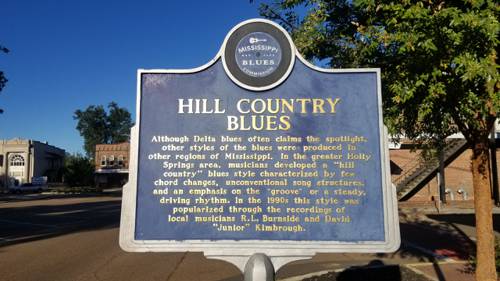
FAQ About The Role of Blues in Social Change Movements

What is the historical origin of blues music?
Blues music originated in the Deep South of the United States around the end of the 19th century. It was primarily developed by African American communities, drawing upon African music traditions, spirituals, work songs, field hollers, shouts, and chants. The blues is characterized by its use of specific chord structures and the blues scale, which have influenced many other genres of music.

How did blues music contribute to the Civil Rights Movement?
Blues music played a significant role in the Civil Rights Movement by giving a voice to the struggles and hopes of African Americans. Artists like B.B. King and Muddy Waters highlighted racial injustices and inspired solidarity and empowerment among listeners. The emotional power of blues music helped to unify people across racial and social divisions, supporting the movement's goals for equality and justice.

Can you name some blues musicians who were influential in social change?
Many blues musicians were influential in social change, including B.B. King, Muddy Waters, and Lead Belly. These artists not only highlighted social issues through their lyrics but also contributed to the cultural identity and unity required for significant social movements. Their music reflected the pain and resilience of marginalized communities, often addressing issues such as racism and poverty.

How did blues music influence political narratives globally?
Blues music significantly influenced global political narratives by spreading its themes of struggle, resistance, and hope. During the 20th century, as blues music gained popularity beyond the United States, it resonated with various liberation movements worldwide, including anti-apartheid efforts in South Africa. The universal themes of oppression and endurance found in blues provided a cultural foundation for political activism and solidarity across different nations and movements.

What are the main themes found in blues music?
The main themes in blues music often revolve around personal adversity, love, loss, and the human spirit's resilience. The genre frequently addresses social issues such as racial discrimination, economic hardship, and emotional pain while also exploring topics like freedom, dreams, and redemption. These universal themes enabled blues music to become a powerful voice in social change movements globally.

How does blues music intersect with other cultural and political movements?
Blues music intersects with other cultural and political movements by serving as a unifying force that draws upon shared experiences and struggles. For example, it has influenced various genres like jazz, rock and roll, and hip hop, each of which has played a role in social and political movements by challenging societal norms and advocating for change. The emotional depth and historical context of blues music provide a powerful platform for discourse and activism.

What role did blues music play during the Great Migration in the United States?
During the Great Migration, blues music served as a vital cultural touchstone for African Americans relocating from the rural South to urban areas in the North. It provided both a sense of continuity and a means of expressing the broader social and economic changes occurring at that time. Blues music helped to shape a new African American urban identity and brought attention to issues such as housing discrimination and economic inequality.

How has blues music influenced modern social change movements?
Blues music has influenced modern social change movements by contributing its themes and stylistic elements to contemporary music and activism. Many artists today draw inspiration from blues to address current social issues such as systemic racism, inequality, and human rights. Blues-inspired music continues to resonate with movements such as Black Lives Matter, providing emotional depth and historical context to current struggles.

What is the significance of blues music in the context of the Civil Rights Movement?
In the context of the Civil Rights Movement, blues music was significant as it gave a voice to the marginalized and contributed to the cultural narrative of resistance and hope. Blues musicians addressed issues of segregation and racism, and their songs rallied communities and inspired activists. The music's emotional power helped to fortify the spirit of the movement and encourage resilience against oppression.

Did blues music help in uniting diverse communities during social movements?
Yes, blues music helped unite diverse communities during social movements by transcending racial and cultural barriers. Its universal themes of struggle and resilience resonated with people from varied backgrounds, helping to build solidarity and a sense of shared purpose. The music's emotional intensity and accessibility made it a powerful tool in fostering community and understanding across different social divides.

What impact did blues music have on the cultural identity of African Americans?
Blues music had a profound impact on the cultural identity of African Americans by serving as a means of expression and representation. It articulated the unique experiences and challenges faced by African Americans and celebrated their resilience and creativity. The blues helped to shape a distinct cultural narrative and identity, contributing to pride and cohesion within the African American community, especially during times of social change.

How did female blues musicians contribute to social change?
Female blues musicians such as Bessie Smith and Ma Rainey were pivotal in contributing to social change by challenging gender norms and advocating for empowerment. Through their music, they addressed issues like domestic violence, inequality, and female sexuality, often giving a voice to women's experiences and struggles. Their contributions laid the groundwork for future generations of female artists advocating for social justice and equality.

In what ways did blues music reflect the economic struggles of the time?
Blues music often reflected the economic struggles of its time by addressing themes of poverty, joblessness, and exploitation. Many blues songs conveyed the harsh realities of life during the Great Depression, the struggles of finding work during the industrialization era, and the economic disparities faced by African Americans. This resonance brought attention to economic injustices and inspired calls for social and economic reforms.

Is there a connection between blues music and the anti-apartheid movement?
There is a notable connection between blues music and the anti-apartheid movement as both expressed resistance to systemic oppression and injustices. South African musicians were inspired by blues' themes of struggle and resilience, often incorporating them into their own protest music. The international popularity of blues helped raise global awareness about apartheid, acting in solidarity with South Africa's fight for liberation.

How did blues music influence other genres that were pivotal in social change movements?
Blues music influenced a range of other genres such as rock and roll, jazz, and hip hop, all of which have played significant roles in social change movements. Elements of blues—such as its chord progressions and expressive lyrical content—have been integrated into these genres, providing a foundation for songs that challenge societal norms and address issues such as civil rights, racial equality, and political activism.

What distinguishes blues music from other genres in terms of its role in social change?
Blues music is distinguished from other genres by its origins in African American culture and its deep expression of personal and collective struggles. It uniquely combines emotional depth with simple yet powerful musical structures, making it accessible and relatable. Its grassroots origins and focus on social justice issues have positioned it as a foundational genre in the discourse of social change, influencing a wide array of other musical styles and movements.

How did blues music evolve to represent broader social issues?
Blues music evolved to represent broader social issues by expanding its themes from personal hardship to include universal subjects such as race relations, economic disparities, and social justice. Artists incorporated these broader social issues into their music, making blues an important cultural vehicle for discussing and advocating change. Its adaptability and relevance have kept it a vital part of the conversation around social issues throughout different eras.

What role does blues music play in contemporary activist movements?
In contemporary activist movements, blues music plays a role by providing historical context and emotional resonance to current social justice issues. Its themes of struggle and perseverance continue to inspire artists and activists, while its musical elements are often integrated into modern genres addressing topics such as racial injustice, inequality, and the fight for human rights. Blues remains a symbol of resilience and a source of strength for ongoing movements.

How does blues music continue to influence cultural narratives today?
Blues music continues to influence cultural narratives today by providing a timeless lens through which to view and discuss issues of human struggle and resilience. Its impact is visible in various music genres and cultural expressions that continue to draw on blues themes and styles. Artists today often incorporate blues into their work to address both personal and social challenges, ensuring the genre's continuing relevance and inspirational power.

Why is blues music considered a foundational genre for discussing social change?
Blues music is considered a foundational genre for discussing social change due to its origins in the African American struggle and its powerful, emotive expression of overcoming adversity. Its focus on themes of lament, hope, and resilience resonate deeply with social movements that advocate for justice and equality. The genre's simplicity and heartfelt expression allow it to transcend cultural boundaries and inspire diverse audiences, making it a crucial part of the cultural narrative around social change.
